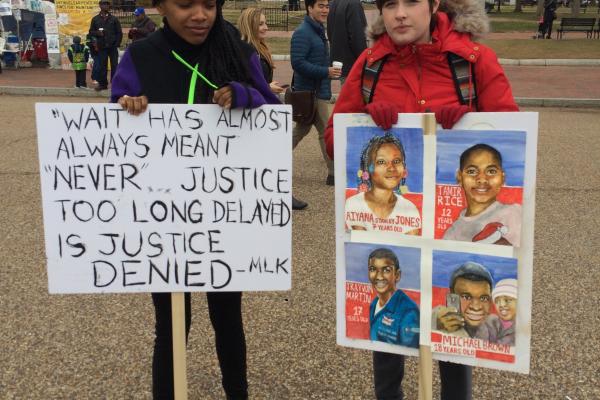Over Martin Luther King Jr. Day weekend, protesters across the country sought to reclaim the radical, activist legacy of Dr. King by taking to the streets in protest of ongoing police brutality. Frustrated that his work has too often been softened and sanitized, protesters stressed that Dr. King’s original tactics, which were often direct and controversial, are desperately needed today if the United States is to effect lasting change.
“[Dr. King] has become more of a vague idea and people forget that he was a person that marched the streets,” one protester in Washington D.C., Caroline, said.
“They need to be talking about real activism and real change and not just having a day off work and saying the name.”
Another woman, Janelle, described Dr. King as “a great leader but also part of a larger movement that is still trying to combat the same injustices that he was fighting against.”
Marching with three children under the age of ten, Janelle explained their presence bluntly.
“This problem isn’t going to go away,” she said.
Read the Full Article

